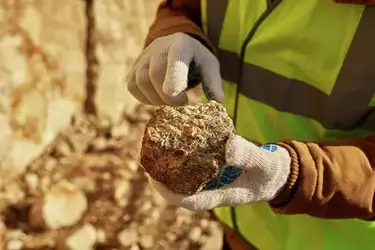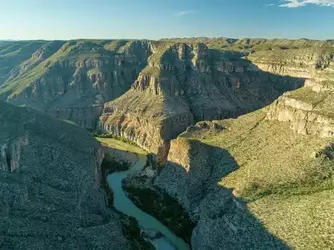Geologists make valuable discovery in remote Texas ranch
The property is currently leased for ranching, grazing, and hunting.
By Ariana Garcia, Assistant News Editor June 27, 2025
Rare earth minerals have been discovered on a remote West Texas ranch.
SeventyFour/Getty Images/iStockphoto
Beneath the rugged desert terrain of a remote West Texas ranch, state officials have confirmed the presence of rare earth minerals—critical components in everything from smartphones to missile systems.
A geological survey conducted on the 353,785-acre property in Brewster County revealed the existence of these strategically valuable elements, according to the Texas General Land Office (GLO), which purchased the land in late 2024. The discovery positions the state-owned site as a potential player in the U.S. push for domestic sources of rare earths, which are currently dominated by foreign suppliers.
"A survey was completed that shows the presence of rare earth minerals," a GLO spokesperson told The Big Bend Sentinel. "Given the rugged terrain and remote location, any exploration or extraction would require significant planning; however, the GLO is open to exploring these options in the future." The agency has not identified specific minerals or locations.
The property is currently leased for ranching, grazing, and hunting. Local officials said they had not been informed of the mineral discovery.

Rare earth minerals were recently discovered on a ranch in Brewster County purchased by the Texas General Land Office in fall 2024.
Laurence Parent
"I don't get the sense that rare earth is one of their plans," Brewster County Judge Greg Henington told The Big Bend Sentinel. "If it was, it's probably years away, just because of the difficulty of getting in there and getting [rare earth minerals] out, and what do you do with them? Who can process them?"
Interest in rare earth development is already underway elsewhere in West Texas. In neighboring Hudspeth County, USA Rare Earth is working to develop the Round Top mine near Sierra Blanca. That project has drawn environmental opposition from residents concerned about potential impacts from open pit mining and heap leaching.
"Keep in mind, this is a highly toxic project that uses lots of water and does lots of surface destruction because they'd be doing open pit mining using dangerous chemicals," environmental activist Bill Addington, who has spoken out against the Round Top site, told The Big Bend Sentinel. "My community is real opposed to that."
Meanwhile, the U.S. Geological Survey, through its Earth Mapping Resources Initiative, continues aerial surveys across the region to identify additional mineral-rich zones along the alkaline igneous belt stretching from Mexico to Colorado.
Link (Archive)
